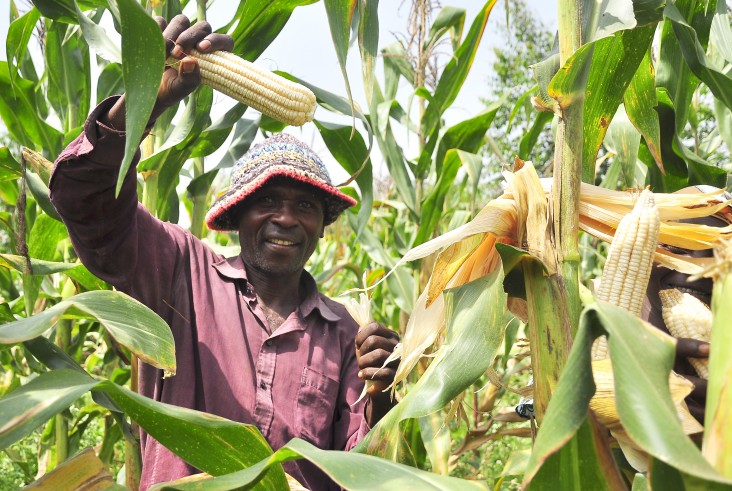
Uganda’s economy registered growth of 4.8 percent in FY2015/16 with the major driver being the services sector that grew by 6.5 percent. The country’s underdeveloped transportation and electricity networks, low agricultural productivity, regulatory challenges and lack of transparency and corruption keep business costs high and hinder investment, economic growth and job creation. As a landlocked country, the destination of the majority of Uganda’s exports is the East African Community, with 2016 exports worth U.S. $88.68 million through August 2016. Uganda accounts for 72 percent of the region’s staple food commodity exports in general. However, the volume of exports to the region decreased over the past year largely due to the conflict in South Sudan, which is a major importer of Uganda’s products.
Trade Capacity Building
USAID/Uganda and USAID’s East Africa Trade and Investment Hub are jointly building the trade capacity of key agriculture and trade sector partners with a focus on the private sector to enable Uganda to increase its export competitiveness in the region, to the United States and internationally. USAID supports the Government of Uganda’s ministries of trade and agriculture, the Uganda National Bureau of Standards and other government institutions to domesticate East Africa Community trade protocols, agreements, regulations and standards to facilitate trade. For example, USAID supported staple food trade through the development of district ordinances on maize grain standards and simplified export processes such as the simplified certificate of origin targeting small-scale agricultural exporters with exports valued under U.S. $2,000. USAID/Uganda and USAID’s East Africa Trade and Investment Hub are also facilitating Uganda’s development of a national African Growth and Opportunity Act (AGOA) response strategy to enable Uganda to take maximum advantage of the AGOA extension and to increase its exports to the United States. Learn more: East Africa Trade and Investment Hub (link is external)
Private Sector Development
Constraints to private sector competitiveness in Uganda include the lack of capital available to potential entrepreneurs and investors, undeveloped infrastructure and a weak enabling environment for business; Uganda is ranked as 115 in the World Bank’s 2017 Ease of Doing Business report. USAID’s investments in agriculture are central to efforts to increase trade and develop the private sector. USAID continues to work closely with the Government of Uganda and other development partners to enhance private sector competitiveness and increase investment in infrastructure. Under Power Africa, USAID supports activities that aim to add 1,000 megawatts of clean energy to Uganda’s power generation portfolio and 1,000,000 new electrical connections by 2020 to help lower the cost of doing business and spur economic growth. In addition, the USAID Development Credit Authority promotes private sector investment by providing loan guarantee facilities to support agriculture enterprises and investment in clean energy.








Comment
Make a general inquiry or suggest an improvement.